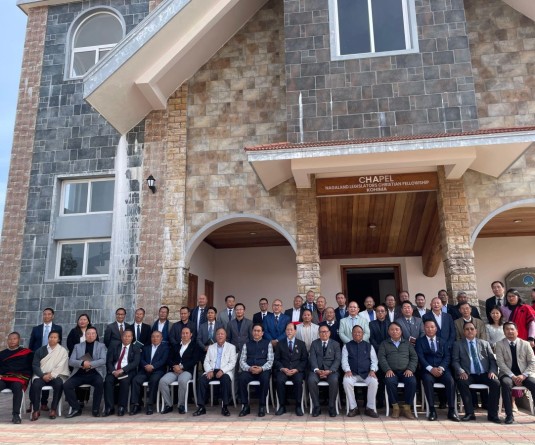
KOHIMA, AUGUST 1 (MExN): The Forest Conservation (Amendment) Bill of 2023, if it becomes law, would tantamount to violating Article 371 (A), said The Naga Rising (TNR). The TNR issued a statement on August 1, raising concern on the impact the Bill would have on the rights of the Nagas over their lands. The Bill proposes to exempt forest land situated within 100 km from the international borders to be used for building strategic assets from acquiring necessary permits. It is awaiting the Rajya Sabha’s approval after it was passed in the Lok Sabha on July 26.
“The central government conveniently forgets that Article 371A was an outcome of a political agreement. If constitutional rights emerging from political agreements can be unilaterally altered by one of the parties to the agreement, the message is clear, the central government does not respect any political agreement,” it contended.
Likening the Bill to the impunity the Armed Forces Special Powers Act gave to the armed forces, it said that the Bill, when it becomes law, will empower the central government to use any part of Nagaland in the name of national security.
“Till today, it was about our lives, now it is about our land and resources and tomorrow it will be about our culture and traditions.” It added, “For indigenous people, our identity and culture are deeply rooted in our land and forest. If we don’t fight for our rights today, we will lose our land and resources forever. One day, our children will ask why we remained silent when our rights over land and resources were taken away from us.”
While stating that the TNR was also one among several that objected to the Amendment, writing to the Joint Parliamentary Committee in May 2023, it said that the way the Bill was passed without considering the concerns raised, demonstrated the Central government’s disregard for the rights of the indigenous people over their lands and resources.
“The Ministry of Environment, Forest and Climate Change’s (MoEFCC) clarification to the concerns on the 100-km exemption confirms that when it comes to national security vs indigenous tribal rights, the former will prevail,” it said.
The MoEFCC has maintained that the exemption the Bill seeks would not be a blanket one or general in nature covering the whole of the proposed 100 km range. It said that the permissions would be given need-based, implying that exemptions would be based on the scale of projects.
The TNR further held that the Bill makes no mention of excluding states, which geographical range and extend, run less than 100 km from the international borders. “Therefore, in whatever way it is interpreted, it means that the whole territory of states such as Nagaland will come under the purview of the Bill,” it said.
Nevertheless, it said that the inferred indifference by the Centre, only strengthened resolve to continue “our fight to protect our land and resources.”
It quoted the environmental lawyer, Ritwick Dutta’s, “Either it is in the law, or it is not. Ultimately, what will be debated in court is not what the Ministry said in the Committee’s report, but the law.”






